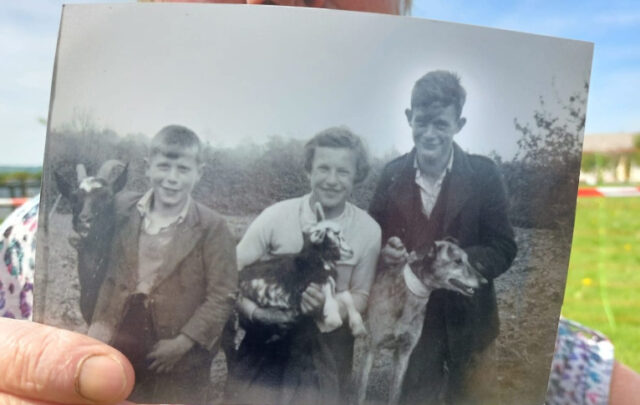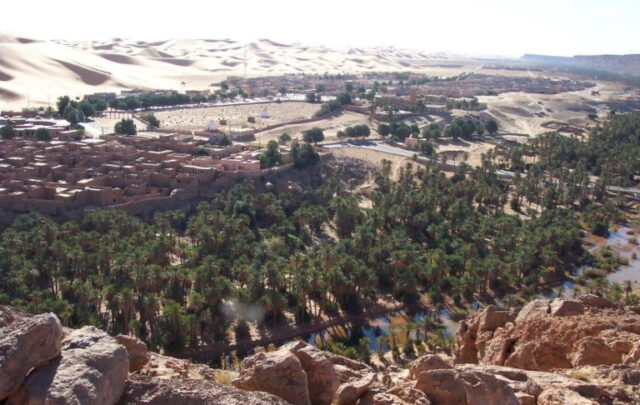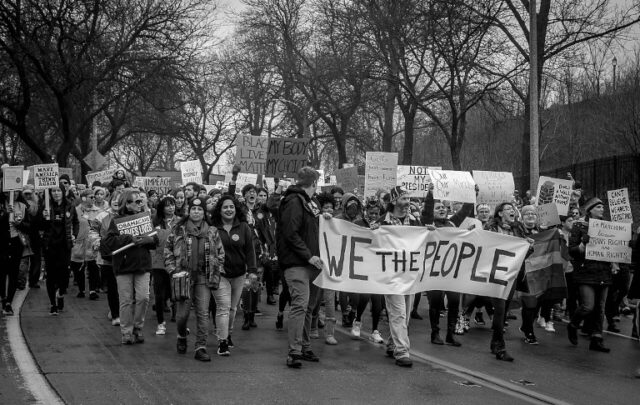I briefly mentioned the Extinction Rebellion climate change protest in my last post. In this one I want to describe what some of my misgivings about it were and how I’ve now laid them aside and embraced the movement, thanks to a few dark nights of the soul and a little helping hand over the line from former British Home Secretary, David Blunkett. The issues bear directly on many wider themes of this blog, so it seems appropriate to lay them out here.
A key demand of Extinction Rebellion (XR) is for the British government to act now and reduce greenhouse gas emissions to net zero by 2025. My main ground of skepticism on this was that for some time now I’ve been of the view that the British government, and most other governments, is so inextricably bound into a model of carbon-intensive capital accumulation that ‘demanding’ anything of it that requires deep systemic change to that model is a waste of time. Better to try to work around it by building autonomies from it and new political structures at a local level as best one can. Besides, if Britain did achieve net zero emissions by 2025, what would that involve? Well, though our farm falls far short of achieving post-carbon perfection, it would involve a national farmscape very different from the present and much more like the localized, mixed, labor-intensive kind of farming we practice. Better just to get on with the farming, then, I thought, and with related activism such as the case I try to make for small-scale farming in my writing.
Other reservations included a sense that my own lifestyle and life choices have been less than perfect environmentally – let he who is free of sin cast the first stone, and all that. Plus I wasn’t sure that disrupting ordinary people going about their business was the best way of spreading the climate change message, especially since I’m a stereotypically diffident Englishman who hates getting in other people’s way and making an exhibition of myself.
So what’s changed in my thinking? In some ways, not much. I still think that the government is inextricably bound into a model of carbon-intensive capital accumulation that makes it virtually certain Britain won’t have decarbonized by 2025. I still think that building local political autonomies via local food and farming work is a key activity. And I think I’ll be a stereotypically diffident Englishman till the day I die. What’s changed for me is the extraordinary success of the protests in gaining national attention and getting people thinking about climate change, and the high levels of public support they achieved despite the radically disruptive tactics.
The BBC ran an explainer article. Are XR’s demands realistic? No, according to some of the experts it quoted. We’ll have to radically cut back on flying, meat and dairy consumption, ditch gas boilers, and build scores of thousands of new wind turbines if we’re to continue consuming energy as we currently do with net zero emissions. Of course, we or our descendants will have to cut back on a lot of things too if we fail to slash emissions and usher in a world of climate breakdown – civilization possibly being one of them. So here’s a thing – to achieve zero emissions by 2025 we may actually have to use less energy. Well, it’s a thought. Not one articulated in the BBC article. Not yet. But we’re inching closer – thanks to XR, closer than we’d ever be if it was mainly obscure bloggers like me talking about a low-energy future.
But how did XR raise the profile of climate change so successfully? By mass civil disobedience involving the blocking of London thoroughfares and bridges by people who were willing to get arrested for the privilege. If they’d protested legally without obstructing anyone or anything, it wouldn’t even have been a footnote in the news. Two of the 1000+ people arrested were my wife and son (yep, I have children, I’m afraid … and yet I still think the government should take action against climate change). So I followed events in London with a keener interest than I otherwise might.
While they were in London, I spent the week at home on the farm, helping to keep it ticking over, being a parent to my daughter, spending long hours at the computer working on the draft of my book where I try to make the best case I can for a low-carbon, low-energy small farm future, keeping going with endless cups of coffee (I drink coffee too … Give me a break – it’s organic, fair trade, bird-friendly … OK, OK, I’ll think about it …), and following the news.
One news item I read was David Blunkett’s article in the Daily Mail ‘Why hasn’t the full force of the law been used against these eco anarchists who fill me with contempt?’“Sorry,” began Baron Blunkett, “but I don’t need any lectures from any Johnny-come-lately on the urgent need to tackle climate change. Eleven years ago I was one of 600 MPs who voted to pass the Climate Change Act, committing Britain to slash carbon emissions by 80% on 1990 levels by 2050.” After roundly condemning the tactics of the “anarchists – for that is what Extinction Rebellion are” and opining that “unlawful protest in a democracy ultimately achieves nothing” Blunkett wrapped up by saying “It fills me with contempt to hear the protesters ‘apologising’ to the public for causing disruption.”
Well, it’s great of course that Baron Blunkett voted for the Climate Change Act eleven years ago. But bear in mind that a fair-sized chunk of the CO2 we put into the atmosphere every year stays there for centuries, adding to the CO2 of emissions past in its climate-forcing work. Bear in mind too that despite the undeniably valuable work on climate change by innumerable people who Blunkett praises for their law-abiding ways, global greenhouse gas emissions and fossil fuel use are rising year on year. The climate change responsibilities of a wealthy, early-industrializing colonial power like Britain, now a largely post-industrial one that’s burned through most of its own carbon, is a topic that perhaps I’ll examine more thoroughly in another post. But I think there’s a case for suggesting they go beyond the Climate Change Act and other official decarbonization efforts currently underway.
The evening my wife came home from the protest, for the first time in years I cried. I cried because the protests triggered pent-up emotions about things far too personal to mention in this post, and not much relevant to it anyway. Maybe I also cried because I was strung-out on too much writing and coffee (organic, bird-friendly). But I think I also cried because I’d looked at myself and realized that my judgments about XR had been wrong, that I should have been in London with the protestors that week, and that while I could have been less supportive of my wife’s choice about where to invest her time, I could have been more supportive too. Like a lot of people, a lot of women in particular, she’s given so much of herself over the years to making good things happen for other people – including raising our children to be decent, thoughtful citizens. So when I see that my son and my wife believe in something so much that they’re willing to get arrested for it for the first time in their respectively young and not-so-young lives (sorry, darling), I think I need to pay attention. It’s surely worth everyone’s while reflecting on their actions from time to time with a dose of self-criticism. Did I get that right? Could I have done that better? There are plenty of times when my personal answer to those questions is ‘no’ and ‘yes’, and this was one of them. But if I were to nominate a single category of people who could most use a dose of humble self-reflection along those lines, frontline politicians in rich countries who’ve had the opportunity to take action on climate change over the last thirty years or so would be right up there on my list. Baron Blunkett, I’m glad you voted for the Climate Change Act. It wasn’t enough. Not by a mile. That’s why we need XR.
So the next time XR stage a climate change action, there’s a good chance I’ll be there. I don’t expect my presence will make much difference to the low probability that Britain will be carbon neutral by 2025. I want to be there anyway. And I’m fair game for anyone who wants to say I’m a hypocrite for even being there in view of my other actions and inactions over climate. One of XR’s principles is to avoid blaming and shaming “We live in a toxic system, but no one individual is to blame”. The whole issue of personal environmental action is a troubling one that I’ve written about in the past. Before permitting myself to attend an XR action my aim will not be an impossible sense of perfect moral purity. But it will be to think a bit harder about the things I do and the things I don’t do and take some modest steps to address them. What’s really needed, though, is non-modest steps from the government that make it easier for people to address them collectively rather than individually.
If I’m at a future protest, I just want to put on record now that I’m not an ‘eco-anarchist’ (surely, surely we can get beyond the notion that civil disobedience is the same as ‘anarchism’, which itself is a complex and multi-faceted political tradition). As long-term readers of this blog will know, I’m a left-republican agrarian populist – and I’ll happily write a piece for the Daily Mail or the BBC explaining what that is and how it relates to climate change (all proceeds to go to XR. Please get in touch via the Contact Form). Granted, if the Daily Mail starts publishing articles on left-republican agrarian populism it’ll be a sign that XR’s goals are almost in the bag. Well, hope springs eternal. But I daresay neither anarchism nor left-republican agrarian populism exhaust the spectrum of political views within XR.
If I’m at a future protest, I’d want to be cautious of falling prey to ‘protest romance’ or to treating arrest as a badge of honor. But the truth is a relatively small number of dedicated protestors made relatively large waves by politely stretching Britain’s largest police force to the limit, and I’ve noticed the implications of that for future political change. Already there are calls to toughen up policing and stop protestors from occupying urban areas. If that happens, we’ll be moving towards the world I wrote about here where the militarized policing of international borders that criminalizes climate change refugees from abroad begins to connect up with the internal repression of dissent against the carbon-intensive status quo in the rich countries. Firm resistance will be needed to stop such a drift into political authoritarianism in the face of climate breakdown. XR gives me some hope that the reserves of resistance are there. And if I’m asked whether our hard-pressed police officers don’t have better things to do than spending time clogging up their cells with thousands of peaceful demonstrators, I’ll say “yes, they bloody do”.
If it comes to it, I’ll have to screw up every ounce of my courage (and there aren’t too many ounces of it to go around) to put myself in line to be arrested or to engage with hostile members of the public held up by the protests. But I’ll apologize politely for disrupting their day, because it’s not something I want to do and because, well, I’m a stereotypically diffident Englishman. But I’m not so diffident that I can’t match David Blunkett’s contempt with a contempt of my own for his epic levels of self-importance and complacency. Thank you, Baron Blunkett, for helping to turn me into a climate change activist.
Teaser photo credit: Extinction Rebellion website























